This piece first appeared in Irish Peloton on 1 November 2012
* * * * *
It’s been almost three weeks since USADA released their reasoned decision in their case against Lance Armstrong which included an avalanche of evidence into the doping practices on the Texan’s various teams. With the lack of top level racing in the days since then, it’s unsurprising that much of the cycling news emerging has included the reactions of people within the sport, not least the cyclists themselves.
It is a quirk of the entire Armstrong case that many of the main characters are Irish. Consequently, the mainstream Irish media can seek comment from several of their own when a big story breaks – the unrelenting journalists David Walsh and Paul Kimmage, the president of the UCI Pat McQuaid, the whistleblower Emma O’Reilly, the prominent cycling journalist Shane Stokes. All of whom have appeared on Irish TV or radio over the past number of weeks.
But when mainstream Irish media look for comment from one of our current cyclists, they usually look to the same one every time. Although Matt Brammeier is the current Irish road race champion and Dan Martin has proven he is the best we’ve currently got in the professional ranks, it is Nicolas Roche who shoulders the burden of providing the view from the peloton in the Irish media.
Some of the reason for this is because of his famous name; even when heard by the non-cycling fan, the name ‘Roche’ will resonate. Nicolas Roche has also been nominated for this position as spokesperson because he has previously volunteered to take part in the media by writing his own race diary in the Irish Independent during his Grand Tour exploits.
As such, Roche regularly provides comment on the Off the Ball show on Newstalk. He knows he will be appearing on this show and yet his answers to awkward but predictable questions are regularly scattered, ill-conceived and unsatisfactory. He approaches interviews in a similar fashion to how he approaches Grand Tours – under-prepared and with a lack of clarity.
* * * * *
Until this year, Roche had spent his entire career riding for French teams and was never involved, either directly or indirectly, in any of the many doping scandals which have sullied the sport. He could always deflect questions regarding doping as somebody else’s problem because he was not involved and neither was his team. Nicolas Roche has now relinquished his right to deflect questions of doping. He did so when he made the decision to join the Saxo Bank-Tinkoff Bank team led by Alberto Contador and managed by Bjarne Riis.
When Roche’s move was announced back in August he took the time to make one of his regular appearances on the Off the Ball radio show. Unsurprisingly, he was asked for his opinions on the prior records of Contador (banned for ‘two years’ and stripped of his 2010 Tour and 2011 Giro victories) and Riis (admitted to doping to win the 1996 Tour de France):
When I signed the contract, Riis made me sign anti-doping rules and loads of different points just to make sure it doesn’t happen again. Obviously the Contador story is there but I don’t want to get into the politics and things like that. I think we’ve analysed different aspects of the team; that obviously was one of the aspects
There’s stories in every team directly at the moment. That’s what I’m saying. I’m not a bold guy because I’m going to a team where the leader has been banned. I hope he’s coming back and has clean ambitions of winning the Tour and Riis admitted and many other people have admitted as well. If Riis has taken drugs in the 90′s, does it mean I have to take drugs today? No, I don’t think so.
Bjarne Riis doped in the 90′s and won the Tour de France as a result, that much is obvious. And no, it doesn’t mean that Roche has to take drugs today because of it. Tyler Hamilton has admitted to doping in his book ‘The Secret Race’. In this explosive book, details are provided of a conversation that Hamilton had with Riis shortly after he joined Team CSC where Riis is openly encouraging the American to undergo blood transfusions:
“Have you ever tried a transfusion, Tyler?”
I shook my head. Bjarne’s blue eyes lit up.
“Oh, you need to do it. You will like it”
Riis then put Hamilton in contact with the notorious Dr. Eufemiano Fuentes, the man at the centre of the Operation Puerto drugs bust, who would provide Hamilton with the drugs and transfusions he needed to pursue his goal of winning the Tour de France.
Bjarne Riis is not just a guy who doped in the 90s, he is a directeur sportif who has apparently been facilitating the doping of riders on his own teams.
With this in mind, Roche’s intention not to ‘get into the politics and things like that’ is ill-advised. He needs to come up with good answers to these tough questions. His riposte on Off the Ball back in August was not a good answer.
* * * * *
As the go-to-Irish-guy-in-the-peloton, Roche appeared on Off the Ball again last week to provide his reaction to the Armstrong story. Again, his responses were scattered and deeply unsatisfactory.
Initially, Roche’s reaction was pleasing and was very much the white that should be expected in contrast to the black of the Armstrong era.
Off the Ball – “Do you have any sympathy for Lance Armstrong?”
Roche – “No, not at all.”
But after some sentiment about his dismay at sponsors like Rabobank abandoning cycling and an expression of anger that so many riders were cheating, that’s where the lines blurred and Roche’s answers degenerated toward a worrying shade of grey.
OTB – “With all the allegations that were there for so long and all the mounting evidence, do you wish you could transport yourself back and research [the allegations] in greater detail so that you would have been in a position a couple of years ago to come out against Lance Armstrong?”
Roche – “It would not have made any difference to be honest with you. I don’t think if Nicolas Roche comes out in 2005, first year as a professional, not having seen any doping stories or having been involved in anything, to come out and say ‘Lance is doping’, I don’t think that would have had any power at all.
OTB – “Even in the last couple of years, more recently, when you were more established in the peloton?”
Roche – “Even though I’m more established now, I still don’t think that one guy or two guys or three guys can make a difference.”
But one guy or two guys or three guys did make a difference. Roche may not have had the personal first-hand knowledge of the organised doping that was rife amongst the peloton but this attitude comes alarmingly close to the code of silence which has brought this sport to its knees.
When asked if he was angry with the UCI for not being able to put a stop to Armstrong doping his way to seven Tour de France wins, Roche firstly diverted the topic to the good the UCI had done with regard to the biological passport (fair enough), but when he finally directly addressed the question, he could only muster anger that the UCI had not managed to produce a positive test. He would not condemn the UCI for their lack of interest in investigating the claims of the likes of Frankie Andreu and Floyd Landis and also expressed his unhappiness with the sudden spate of confessionals:
OTB – “All these people had spoken out before [The Andreus, Emma O’Reilly], but the UCI failed to put together an investigation like USADA did, are you angry about that?”
Roche – “I’m more angry about the riders who suddenly all decide to admit. When it comes out from a soigneur who has been fired…you could say they’re doing it because they’re not working with [Armstrong] anymore…I’m more disappointed with all these riders who just went on with it who suddenly in the last week have said ‘Oh I’m sorry for what I did, I was forced to do it’. That’s more the thing that disappoints me”
OTB – “So you wouldn’t be critical of the UCI for their failure to act on some of this, what was public knowledge?”
Roche – “That’s not what I’m saying. I’m saying that at the time, if a soigneur comes out and she’s suddenly fired by Armstrong and she starts saying Armstrong is doped, you could think that maybe she’s just trying to get at him because he’s a man who’s easy to get at and everyone was trying to get at. That’s all I’m saying”
OTB – “But Frankie Andreu gave an interview in 2006 to the New York Times in which he admitted to doping while on a team with Armstrong, is that not the kind of thing that should have been followed up [by the UCI]?”
Roche – “Definitely. But were they not still testing him?”
OTB – “Testing yeah, but Nicolas you’re as aware as I am, I’m sure, of how inadequate the testing seemed to be back then?”
Roche – “But that’s not true, because they’ve caught other riders. So it means that the test was working….so it’s a bit too easy to say that there should be more than tests. If they do 25 tests and they have to do more, then they do 30 tests [on Armstrong], and there’s other riders testing positive…
OTB – “But when they were first using EPO there were no tests that could detect that and essentially a lot of riders got away, including Lance Armstrong, without testing positive despite the fact that they were doping. So what I’m saying is, there are other methods and one of those would seem pretty clear to me and that would be to interview people and to gather information”
Roche – “True. I agree with the interview thing. But then it’s very easy for someone just to sit in a chair and say ‘I saw this and I saw that’…that’s what I would have been worried about.”
Roche seems to be indicating here that he is concerned that ultimately it was testimony that brought Armstrong down and that this will set a precedent for riders receiving suspensions despite never having failed a test. This concern is rather moot considering that previously, there have been many riders before Armstrong who didn’t test positive but have been handed suspensions, thanks to investigations – Jan Ullrich, Ivan Basso, Alejandro Valverde, David Millar etc.
This attitude is also worryingly close to the party line being peddled by the likes of five time Tour de France winner Miguel Indurain, perhaps concerned about the new found fragility of his own legacy, who said recently when asked for his reaction to the Armstrong case:
I am a little taken aback. It is strange that this is done only from testimonies. Rules were in place and now it seems they have changed…I think he will come back and appeal and try to show that he played fair for all those years.
Roche was then asked about his thoughts on writers like David Walsh and Paul Kimmage who have been attempting to expose this story for more than a decade. Roche said he had never met Walsh and although he had huge respect for Kimmage’s writing, he seemed to think that Kimmage was bitter and that he doesn’t like the sport of cycling.
* * * * *
Finally, Roche was probed on whether he thinks the president of the UCI, Pat McQuaid should resign:
OTB – “A lot of people are calling now for Pat McQuaid to step down, he’s been very clear that he’s not going to do that. Do you think that he should move aside so that cycling can move on?”
Roche – “Well there’s him and a lot of people who need to move aside. Is it only him that needs to move on? You can see that Sky today fired Bobby Julich…Yates as well for admitting doping in the Armstrong years. So there’s a lot of things going on….I’ve heard all the stories about the corruption and about [McQuaid] accepting the stuff and all that…I can’t really give my eh…is it only McQuaid the problem? When there’s a crisis in a country, is it only the president of the republic that goes down?”
OTB – “Well certainly if the president steps aside, it sends out a big signal that the organisation themselves are taking responsibility. So you don’t agree that Pat McQuaid should step aside?”
Roche – “No I didn’t say that. I didn’t say that he should step aside or not step aside. I said ‘is he the only one that should step aside’?”
OTB – “So you’re not gonna give me a straight answer?”
Roche – “No. I can’t really say a straight answer.”
OTB – “It’s a straight forward enough question Nicolas.”
Roche – “Now you’re just trying to push the answer…but what exactly did Pat do, or didn’t do?”
OTB – “A lot of things we’ve talked about. He didn’t show any appetite to look for testimony or for interviews with a lot of these witnesses. He himself has talked about the fact that a culture of doping existed. He only took over in 2005 but he doesn’t accept that any mistakes were made in the past. Essentially, he doesn’t seem to have taken any sort of responsibility for what you have described in the Irish Independent as what could turn out to be the biggest scandal in the history of the sport.”
Roche – “So basically for not being responsible enough?”
OTB – “At the very minimum, not doing enough to try to find out the truth about the Lance Armstrong story.”
Roche – “OK, for the Lance Armstrong story I agree, but like I say on the other hand he has imposed the biological passport and I think that was a great step forward…He’s trying to move the sentence to four years as well instead of two years for doping which I completely agree with. So obviously he faulted on the Armstrong story but do you understand where I am sitting?”
It was there that the show ran out of time and Roche’s non-committal answer was left hanging. The interviewer was Eoin McDevitt who has a great knowledge of the various threads to this story. From the line of questioning he followed with Roche and his ability to formulate intelligent and informed follow-up questions, it is abundantly clear why Pat McQuaid refused to appear on the show in the wake of last week’s UCI press conference. Roche’s reluctance to come off the fence with regards to McQuaid’s position must be footnoted with the fact that his agent is Andrew McQuaid, Pat’s son.
But the question of McQuaid’s resignation was an obvious one. Why had Roche not gathered his thoughts beforehand? He should have known he would be asked this and had an answer prepared. Even if the answer was not definitive, he could have explained why it is a difficult question for him to give a straight answer to.
* * * * *
Roche is not helped in this matter by the fact that having lived in France for most of his life, English is clearly not his first language. He can stutter and stumble when searching for appropriate words to use and can often come up with unusual phrases and terms which don’t befit the sentence and would not normally be used by a native English speaker. This is all the more reason why Roche would do well to organise his thoughts better before subjecting himself to such informed questions.
An interview with current world champion Philippe Gilbert appears in the latest issue of Cycle Sport magazine in which the Belgian talks about the challenges of dealing with the press:
The important thing when you give an interview is to do it well, not 10 times. Afterwards, you may say some wrong things because you may be bored, you are not focused and not concentrated. And then a bad question comes and you are not ready, or you are nervous. I think you have to do less contact [with the press], but good quality contact.
Roche could do worse than take a leaf out of Gilbert’s book, in more ways than one.
The Irishman’s decision to move to a team which houses the highest profile rider who has served a doping suspension and the highest profile team manager with a history of doping, has compromised his purity. Next year, if we see Roche winning races regularly, which he has failed to do thus far in his career, like it or not, those victories will be darkened slightly by the shadow of doping cast by members of the team which Roche has chosen.
For Roche, this unfortunate but unavoidable scepticism is the saddest thing of all and this is the reason that Roche should be angry. This is the reason why Roche should welcome investigations and encourage riders to provide testimony. This is the reason that he should call for the resignation of McQuaid, because the UCI have floundered in their task to govern the sport of cycling. Although Roche has failed in his ability to communicate effectively through the media, the UCI are guilty of the infinitely greater crime of utterly failing to protect riders like Nicolas Roche.

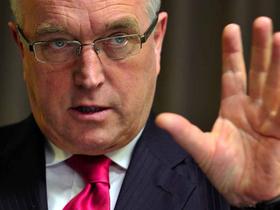
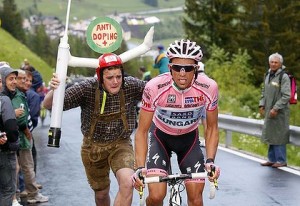
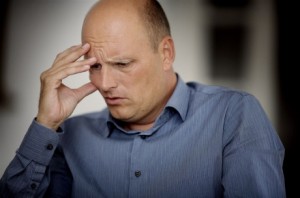
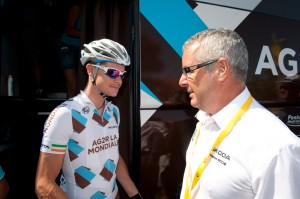
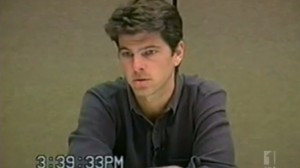
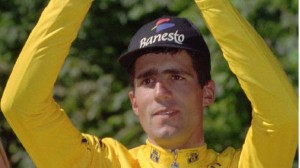
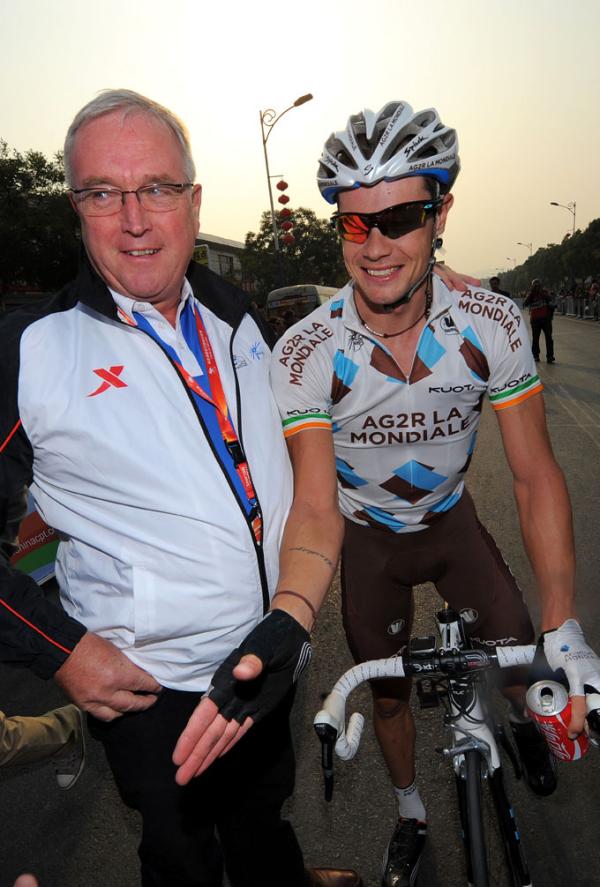
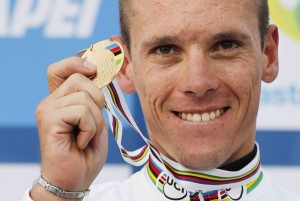

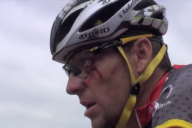




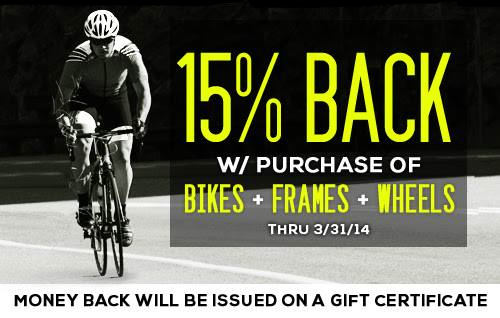

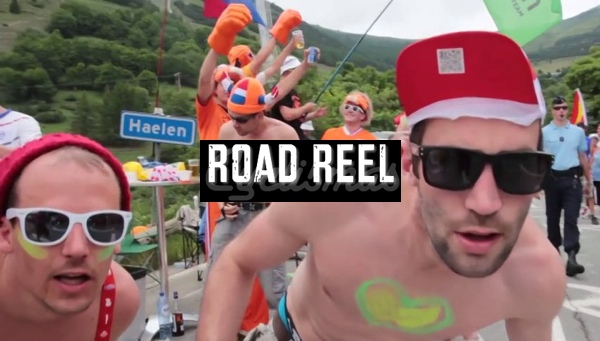
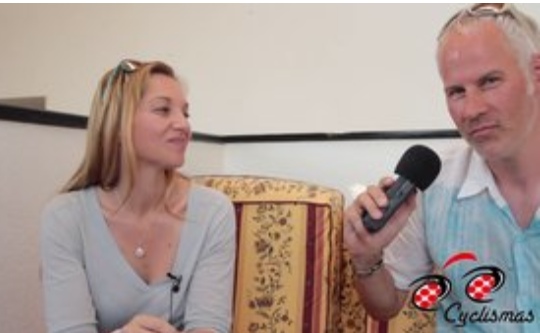
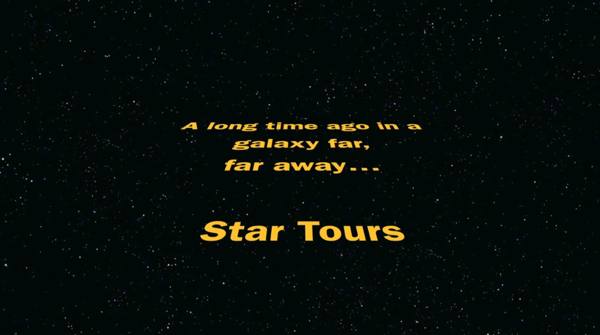
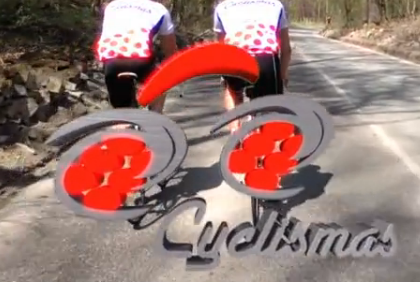

5 Comments
McQuaid’s son is Roche’s agent.
Seamus_H Yes, thank you. That fact is stated in the sixth paragraph from the end of this piece. Didn’t you read it?
I think Roche is saying Pat’s not the only one that needs to go. He’s right.
Hein Verdruggen is the guy that got Pat hired. At minimum, Hein, Pat, and Alain need to go and World Cycling Productions needs to be killed.
He’s trying to stay employed and drop some hints.
**Everything** about the 7x win was suspicious and not a word out of Pat and Hein. To date, my crazy theory is the TdF wins were bought.
Thanks for this article – another sharp insight, much needed.
Understanding the depth of the drug problem is like putting together a massive jigsaw on a tea tray, indecipherable because it’s been carelessly stuffed back in the cupboard so many times with bits missing.
I found andother missing piece in Robert Millar’s critical article about the UCI, where amongst other things, he cites their setting of the 50% haematocrit rule, which I think shows what self assuming mini god’s these UCI men in suits are.